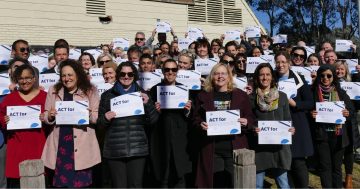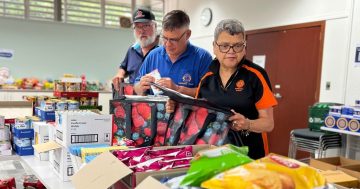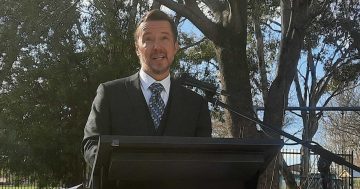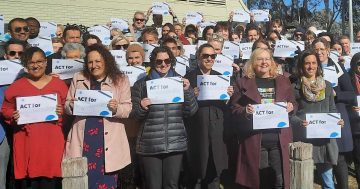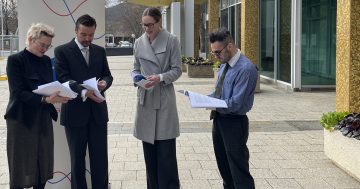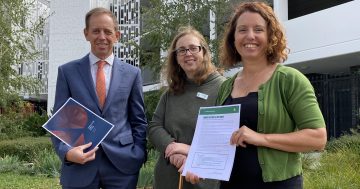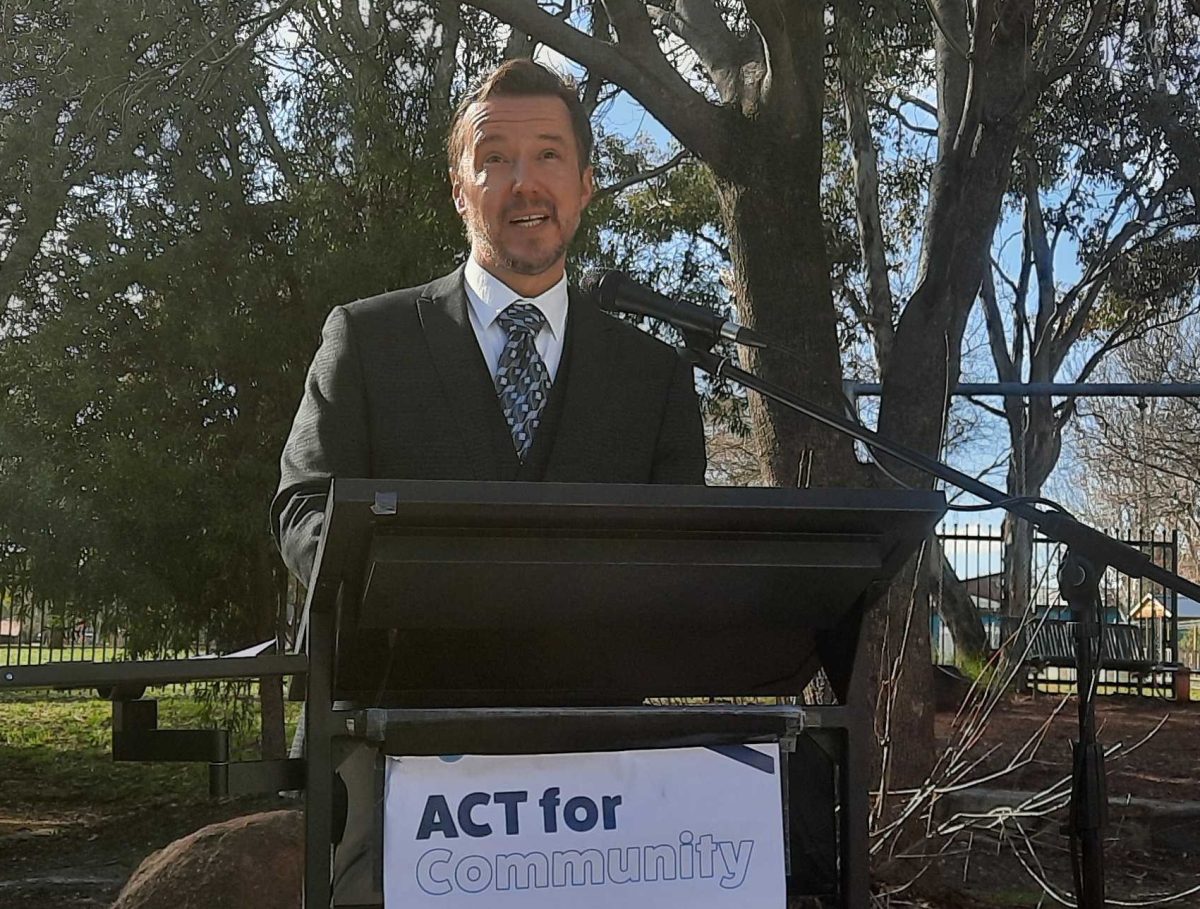
ACTCOSS CEO Dr Devin Bowles at community sector campaign launch. Photo: Ian Bushnell.
This election, we saw all four major parties commit to some form of funding for the community sector. While they are not equal in their ambition with each other, every party increased its commitment and engagement compared with four years ago.
In large part, these pledges were a direct response to the persistent advocacy and unified efforts of the ACT for Community campaign. The campaign is ongoing, and significant work remains.
So why did the ACT community sector feel compelled to initiate a campaign for themselves alongside their already tireless campaigns for the people they serve?
I could tell you it’s because funding has not kept pace with population growth. Or that services have seen a significant leap in demand over the past financial year. Or that the growing cost of living and unaffordable housing has left people in crisis who weren’t before.
Or that the community sector knows that it will be called on to respond to climate emergencies but has not been resourced to prepare for them.
But none of these reasons capture the people behind the numbers.
They don’t capture the mum who keeps her children home from school because she can’t afford the petrol to drive them there.
They don’t capture the child who acts out in class to hide the fact that they can’t read as well as their peers because their mind is racing with worries about being homeless or not having enough food.
They don’t capture the teen who opts for rebellion to disguise their poverty – first stealing food because there’s none at home, then stealing clothes to pretend their family can afford them.
They don’t capture the woman who, stripped of financial control and isolated from all support, returns to a violent relationship just to keep a roof over her children’s heads and food in their bellies.
What would you write in your gratitude journal if you were on $56 a day, sitting on the priority housing list that has a wait time of 180 days?
As Associate Professor Ben Phillips pointed out in his address at the Anti-Poverty Week event, no one who has ‘priorities’ can wait 180 days.
This is why the community came together this ACT election – not to prove the sector’s worth, but the worth of the people they exist to serve. Consider it an act of compassion, an iteration of advocacy efforts.
This week is Anti-Poverty Week. The word poverty can help capture the attention of decision-makers, aiming to extend a deserved lifeline to those in our community who, through no fault of their own, didn’t win life’s lottery.
Like Anti-Poverty Week, the lead-up to the election is an opportunity to remind voters and candidates of their best selves.
A democracy in which people’s voting is solely to advance their own interests is a sick democracy. It pits people against each other and often leads to poor outcomes for groups that happen to be in the minority. History demonstrates that it is the interpretation of democracy that leaders with authoritarian instincts promote because they know how easy it is to exploit.
A properly functioning democracy regards every voter as a leader and gives them the responsibilities that come with leadership. Chief among these is voting for the good of the collective, with particular attention to those who’ve been left behind.
This phase of the ACT for Community campaign has been about reminding Canberra’s leaders, including its voters, about their responsibilities. It has been a call to prioritise those who are experiencing poverty, disadvantage and other forms of exclusion. It has been a reminder of the critical role that the community sector has in forming and nurturing our shared community and the smaller communities that make it so vibrant.
Dr Devin Bowles is the CEO of ACTCOSS. He has held leadership positions in government and the non-profit sector, and worked as an academic in epidemiology and public health.












